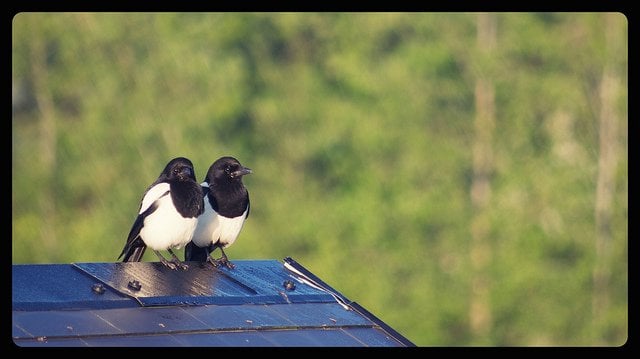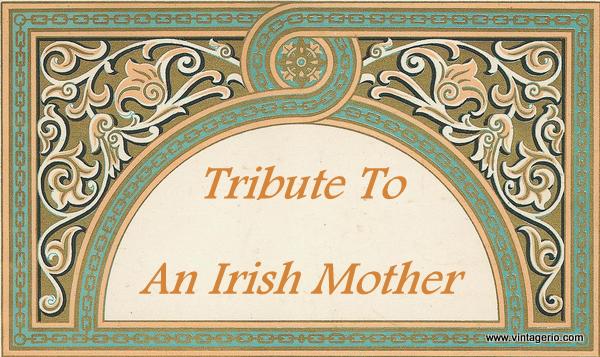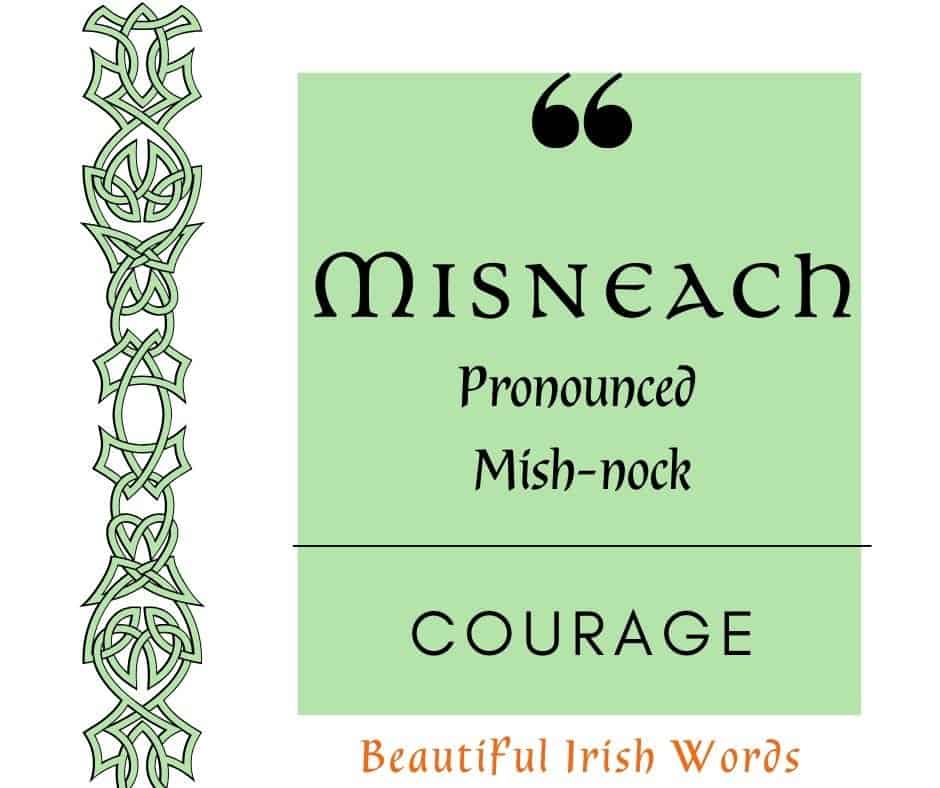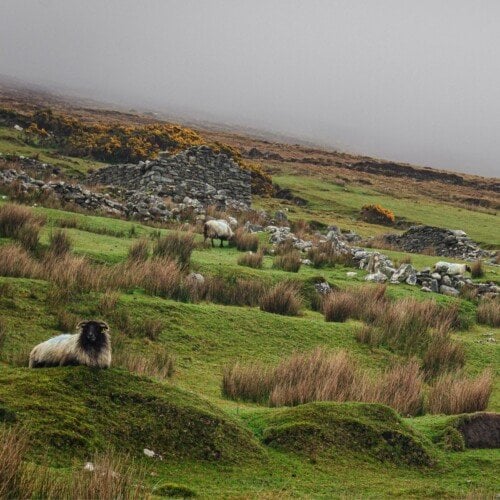Ireland is a land of superstitions. Take it from me. I grew up surrounded by these superstitions. Are the Irish a superstitious race?
Pheasant feathers or lilac were never to be brought into my granny's house. There would be no good luck anymore if a pheasant feather crossed the threshold.
God forbid a robin landed on a window sill and flew indoors - he bore the news of imminent death. When visiting a house for the first time, we had to leave by the same door we entered. I could go on and on.

Table of Contents
- The Irish Psyche
- Why are the Irish so superstitious?
- What is a superstition?
- The origins of superstitions
- Coincidence or a greater force at work?
- Enduring legacy of superstitions from the time of the druids
- The Penal Laws
- Are the Irish more superstitious than other cultures?
- Why do superstitions live on?
- Some Lasting Irish Superstitions
- Superstitions About Birds
The Irish Psyche
Although most Irish people today probably don't believe in many of these superstitions, our Irish psyche holds a healthy respect for them. Abiding by the rules of ancient Irish life comes naturally to many of us. We adhere to an unwritten mythical code out of pure habit, automatically reenacting behavioral patterns learned in our childhood years.
As I thought about Irish superstitions I was taught as a child I asked myself an inevitable question...
Why are the Irish so superstitious?
In today's post I hope to explore some of the reasons why I believe the Irish seem to be consumed by irrational fears and beliefs.
Listing all of our crazy superstitions is a job for another day, and probably fodder for a whole collection of blog posts, so instead let's try to focus on the great big why surrounding Celtic faith in the supernatural.
What is a superstition?
Superstitions are beliefs based on myth, magic, or irrational thoughts, that are not based upon reason and knowledge.
Superstitions are intrinsically tied to traditional folklore, and let's face it, Ireland is a country steeped in legends and myths with a vast array of characters from faeries to changelings, to wily leprechauns.

The origins of superstitions
The exact origins of many old superstitions may never by known, but they do appear to be an odd mixture of paganism, Christianity, and folklore, and deeply influenced by social history.
Human nature is such that we always search for a cause for things we cannot understand. That desire to figure things out is the root of all scientific progress, but on our journey in search of answers, many wrong conclusions have been reached.
When searching for a reason for things beyond their comprehension our ancestors explained situations as best they could, albeit their answers were steeped in mythical origins. The wrong answer was deemed better, than no answer at all.
Coincidence or a greater force at work?
Sometimes unhappy coincidences reoccurred frequently enough for a blind link to be acknowledged, and a superstition to become enshrined in the general belief system of a community.
Irish superstitions are ultimately concerned with addressing the helplessness of the human condition. In times of trouble, and there were plenty such times for the Irish in centuries past, our ancestors turned to old superstitions which may or may not have helped them at all.
This blind faith in haphazard cures and beliefs probably brought comfort and hope to those who felt helpless.
Whether the warding off of ill luck was real or imagined, at least reassurance lay in attempting to control these evils.

Enduring legacy of superstitions from the time of the druids
Ireland remained under the influence of Druidic teachings far longer than any other European nation. This can be attributed to the island's remoteness on the western edge of the continent, and its freedom from Roman conquest.
When early missionaries converted the Irish to Christianity they did so with minimal conflict, adopting a creed of tolerance for the old way of life.
No persecutions are recorded. Rather than destroying sites of ancient worship, the new church transformed them into shrines of prayer and centers of worship by associating them with a saint. This policy of tolerance for old Druidic superstitions may account for their survival.
The Irish have clung to the ancient customs of their forefathers for thousands of years. An enduring belief in a fairy race may be traced back to the time of the druids.

The Penal Laws
The Penal Laws were statutes passed by the English parliament to penalize the Irish for their Catholicism. First written in 1695, the Irish suffered their consequences for more than 100 years.
A number of these laws excluded Catholics from working in any field of scientific study, thereby limiting our ability to rationalize some of these old beliefs. Irish Catholic children were forbidden to attend school.
Scholars and poets taught young Irish people in clandestine hedgerow schools, with curricular emphasis placed upon passing the legends and myths of ancient Celtic culture to the next generation. Irish belief in the supernatural was thereby strengthened.
The Penal Laws were enacted because Catholics were deemed to be superstitious and idolatrous by their Anglican rulers. I believe the Irish solidified their superstitious practices out of pure stubbornness, and in direct defiance of the laws designed to curtail them. If you tell an Irishman he cannot do something, then rest assured he will die doing it.
Are the Irish more superstitious than other cultures?
William Butler Yeats, the most famous of all Irish poets, recognized that the Irish were more superstitious than other races. He wrote:
".... for everyone is a visionary, if you scratch him deep enough. But the Celt, unlike any other, is a visionary without scratching.”
-W.B. Yeats
He also observed the peculiar, contradictory belief system of an old woman he met in the west of Ireland.
"One woman told me last Christmas that she did not believe either in hell or in ghosts. Hell she thought was merely an invention got up by the priest to keep people good; and ghosts would not be permitted, she held, to go 'trapsin' about the earth' at their own free will; 'but there are faeries,' she added, 'and little leprechauns, and water-horses, and fallen angels.'"
- W. B. Yeats

Why do superstitions live on?
In light of all the scientific evidence that exists today to debunk these superstitions, why do old Irish superstitions live on? I don't think there is a person alive with a drop of Celtic blood who can categorically deny they harbor an innate respect for some old wive's tale.
Well, perhaps we don't truly believe in all those omens of bad luck, but at the same time we wouldn't dare change the original name of a boat, nor move house on a Saturday.
Some Lasting Irish Superstitions
Here's a list of superstitions I have heard of or been exposed to during the more than fifty years since I was born.
- Thirteen is considered an unlucky number because it was the number who attended the Last Supper.
- A black cat crossing your path was said to bring good luck.
- When baking soda bread, always score a cross on top of the loaf to let the devil out. My granny would say it was to let the faeries out.
- It's bad luck to walk under a ladder, but if you find yourself under one, then spit to change your luck to good.
- If you find a comb on the ground, never pick it up because it might belong to the banshee.
- A candle should be placed in the window for the duration of the Christmas season between December 24th and January 6th. This wards off bad luck for the coming year.
- If your ears turn red and feel like they are burning, then someone is talking about you. Left ear burning means they are saying nice things. Right ear burning, they’re not saying nice things about you. An old rhyme explains this burning ear superstition - “Left for love, right for spite.”
- Never give away anything sharp to a friend. A knife or scissors as a gift can indicate a cut in the friendship.
- When a piece of cutlery or silverware falls to the floor, expect a visitor. If a knife falls then expect a gentleman visitor. A fork to the floor, a visitor to the door is also true, but this time a female should be expected. A spoon to the floor means you should expect a child visitor.
- If you spill some salt on the table, a fight is predicted for your near future. However, there's a remedy for this. Take some of the spilt salt and toss it over your left shoulder. You can blind the devil by tossing it over your left shoulder only.
- An itchy palm is a sign of money coming to or going from you. If your left palm is itchy, you'll receive some money. However, an itchy right palm means you'll have to give some money away.
- A groom cannot see his bride on the morning of the wedding.
- A bird poop on your back, or the bird poo landing anywhere on your person, is considered to be a sign of good luck.
- The Infant of Prague statue is placed outside the night before good weather is required for a special event. Weddings usually signal the Infant of Prague must spend the night outdoors.
Superstitions About Birds
- It was lucky to hear the cuckoo in spring with your right ear first.
- When you see magpies then there are many meanings. One lone bird is a sign of sorrow. Irish people don't like seeing one lone magpie. The rhyme goes like this...
“One for sorrow, two for joy,
Three for a girl, four for a boy,
Five for silver, six for gold,
Seven for a secret never to be told.
I think this adherence to an old superstitious code comes from a reverence for the past. We recognize that these old beliefs have been handed down to us from many generations that have gone before us. By sticking to their old code of mythical behavior, we acknowledge their legacy, and let the spirits know we understand the influences that helped shape their lives.
Because God between us and all harm, who knows what might happen if we blatantly went around the place ignoring flocks of magpies desperately trying to let us know if any luck might be in store for us.
Thanks for following my recipes and ramblings.

Slán agus beannacht,
(Goodbye and blessings)
Mairéad -Irish American Mom
Pronunciation - slawn ah-gus ban-ock-th
Mairéad - rhymes with parade
Here are some more recipes and ramblings you might enjoy...
Lessons for Tourists
- From Foreign Tuber to Irish Treasure: The Arrival of the Potato in Ireland
- Foxgloves and Fairies: Ireland’s Magical Summer Bloom
- You Don’t Just Visit Ireland - You Feel It In Your Soul
- Where the Sea Meets the Soul: Selkies in Celtic Lore
Giveaways
- Irish Tea and Cookie Hamper Giveaway
- Green Tartan Blanket Giveaway for Saint Patrick's Day
- Irish Countryside Simple Celtic Knot Necklace Giveaway
- Saint Brigid's Blessing For The Home Framed Printable

















brian@irelandfavorites
Superstitions or the ability to hear when others are deaf? Knock on wood we'll all be safe and sound,
Cheers,
Brian.
Irish American Mom
Brian - Lots of wood knocking happens around Ireland, and I don't know how much salt gets thrown over shoulders each year. As for magpies, you'd be worn out counting them as you drive around the countryside.
Take care, and thanks for checking in.
Mairéad
Maryann Marshall
I have forwarded your Email to an Irish friend, and am sure she will enjoy your blog.
Irish American Mom
Maryann - thanks for spreading the word about Irish American Mom. I really appreciate your support. So glad you enjoy my ramblings.
All the best,
Mairéad
Penny Wolf
I for one am not going to chance what I know to be labeled superstitions. 🙂 How do you shake what you are raised with? I think the superstitions could be called "The Other Commandments" especially since most address everyday living. Belief in the unseen (sometimes we get a glimpse) is to be living from the heart instead of logic. That's my kind of world. I love the post today.
Irish American Mom
Thanks Penny - glad you liked this post. Living from the heart instead of logic was definitely practiced in Ireland in years gone by, and I like to think there are parts of the country where it is still true today.
Best wishes,
Mairéad
T.M. Johnson
Magpies in Ireland? Interesting! When I was a boy growing up on the river in E. Wash., those crafty corvids were commonplace. That they would dwell in Ireland seems strange to me (same species??)...an unlikely habitat for them as their habitat in E. WA was/is arid sagelands and rocky hillsides sprinkled with servis berry bushes, their favorite nesting place. As far as magpies being harbingers of luck, good or bad, I wouldn't know. One summer our family hosted five magpie chicks. All five didn't last through fall: one was electricuted on top of a power pole; the second met the same fate when it flew up to investigate and also got zapped; the third choked to death on a chunk of asparagus my baby sister shoved down its throat (no problem feeding magpie chicks, their mouths are constantly open); the fourth, we believe, poisoned itself by eating rock salt; and the fifth , "Beeo," lasted until fall when it either flew away seeking a mate or succumbed to target practice by dove hunters. Maybe they do presage luck, but I'd say ours, if any, was definitely bad. As far as "flocks" of them, I never recall seeing more than pairs of magpies like those in your photo. I did discover a collective noun, though: "a conventicle of magpies."
Even though my paternal grandmother, Mary Egan, came from Louisburg, County Mayo, the superstition gene must have passed me by, most likely sublimated by those of my paternal grandfather, Hungarian, and a confirmed curmudgeon.
Very much enjoyed this post, the Yeats' quotes in particular. TMJ
Irish American Mom
T.M. - Magpies are very plentiful in Ireland, leading to frequent repetition of the old verse "One for sorrow, two for joy .....". I don't know if Irish magpies are the same as those found in the Pacific NW. I always remember my mom shooing magpies away from the windows when I was a kid. They were terrible for eating the putty at the sides of our windows. Your childhood magpie rescue was quite an adventure - pity such bad luck followed them.
I love your theory for your family's lack of superstitious practices. Glad you enjoyed this post and my theories surrounding the origins of Irish superstitions.
I hope you have a great week,
Mairéad
Lorna
Yep - always look for a second magpie, never walk under a ladder etc etc 🙂 and yes, of course we believe in the little folk - you just never know. Unfortunately though, the working fairy never comes to clean the kitchen at night!
Irish American Mom
Lorna - Alas, the working fairy didn't steal away in my suitcase when I came to America. She's desperately needed around here.
All the best,
Mairéad
Kathleen
Interesting read, Mairead. Did you ever hear the one I mentioned on FB that if a woman whistled it made the Blessed Mother cry? How about, sit on a table, marry a drunk. I heard them, but never put much stock in them. Maybe I didn't even understand them when I was young! 🙂
Irish American Mom
Kathleen - I've heard tell that whistling women did not meet with approval in Ireland in days gone by. I had not heard of the habit being linked to the Blessed Mother crying. But such correlations were frequent with old Irish superstitions. I did hear of "Sit on a table, marry a drunk." There were many sayings designed to ensure young girls behaved in a lady like way. I heard many such sayings as a girl growing up in Ireland, but it is only now that I look back and try to understand the logic behind them. I suppose I should say motive behind them, since there was little logic to many of these.
Thanks so much for stopping by,
Mairéad
Cheryl Barker
Mairead, I'd didn't realize the Irish were such a superstitious people. Great idea to do a post (or series of posts) sharing those superstitions. I'd love to hear more of them. Loved the bird photos you included in this post, too! 🙂
Irish American Mom
Cheryl - Irish superstitions abound. I think I shall gather them into different categories for a collection of blog posts - there's plenty material for a long series. Hope you had a lovely vacation.
Best wishes,
Mairéad
Debra
As an Irish American I too grew up with the weird superstitions. However, moving to Arizona in 1984, I was surprised by the amount of superstitions in the populace. The American Indians, the Mexican & Central American cultures have very deep rooted superstitions. We even have a mountain range called The Superstition Mountains. What I find funny is no matter how educated a person becomes the superstitions learned in our youth last a lifetime.
Irish American Mom
Debra - So true about how hard it is to shake the superstitions we learn as children. Technically, I don't believe in any of the superstitions I learned as a child, but for some reason, I just have to abide by them. I didn't know of the Superstition Mountains in Arizona. It's amazing how superstitions are part of so many cultures throughout the world. I suppose it's simply human nature, searching for answers for what we don't understand.
All the best,
Mairéad
Bonnie Banters
Fascinating article on Irish superstitions and beautifully written!
Irish American Mom
Thanks, Bonnie. I enjoyed writing this piece and coming up with some ideas to try to explain our Irish superstitions. I don't know if we are the most superstitious culture in the world, but I know we must be pretty close.
All the best,
Mairéad